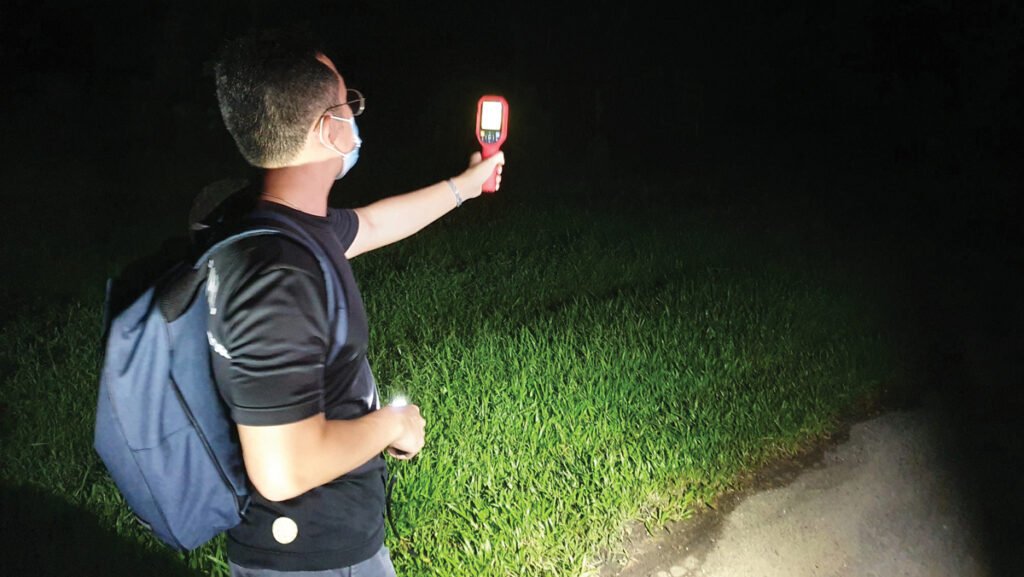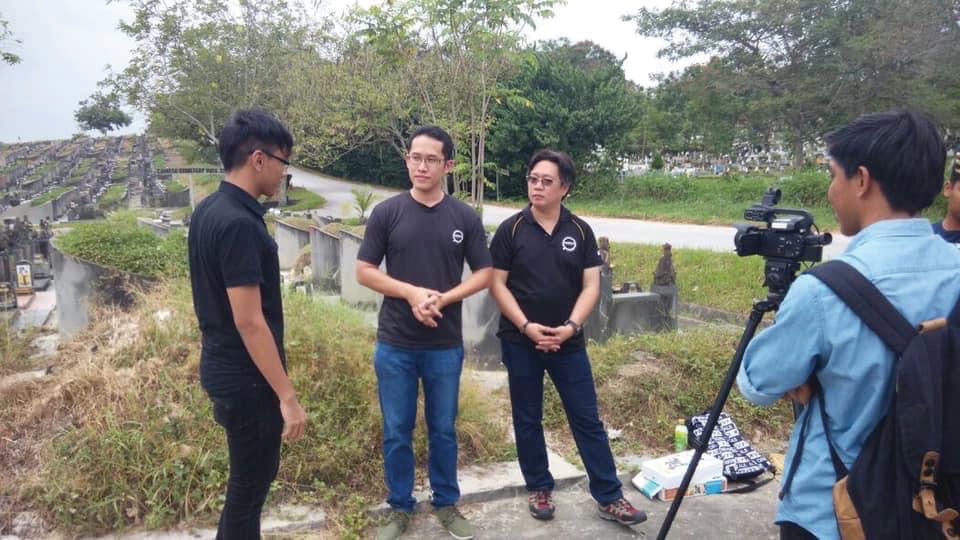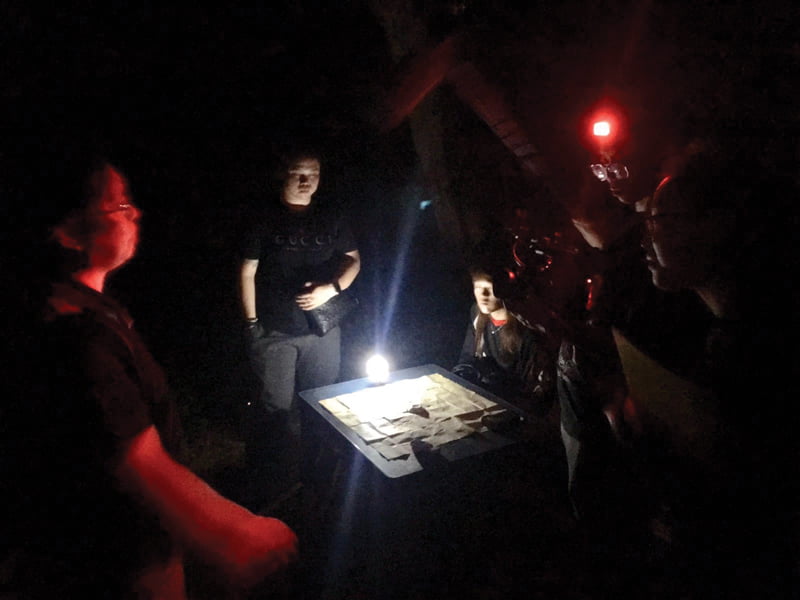 Singapore is accustomed to the spooky and supernatural. Our city-state may be small and safe, but it boasts myriad celestial tales, abandoned and potentially haunted buildings, neighbourhoods steeped in mystic folklore, and don’t get us started on Haw Par Villa, Pasir Panjang’s nightmarish theme park with its gruesome Ten Courts of Hell.
Singapore is accustomed to the spooky and supernatural. Our city-state may be small and safe, but it boasts myriad celestial tales, abandoned and potentially haunted buildings, neighbourhoods steeped in mystic folklore, and don’t get us started on Haw Par Villa, Pasir Panjang’s nightmarish theme park with its gruesome Ten Courts of Hell.
Within the local culture there are those who genuinely believe in the existence of mythical creatures, such as the Orang Minyak (Oily Man) and the Pontiak (female vampire ghost), thanks to myths, fables (and perhaps something of a fascination with Stranger Things).
Indeed, Singapore is home to several paranormal societies. Some seek to ascertain if a place really is haunted, using gadgets like EMF devices, motion detectors and digital voice recorders to capture evidence. Others call themselves “ghost hunters” and choose to visit locations simply as a bid to interact with spirits and feel a bit spooked.
Jeremy Shiu, a 39 year old lecturer in a local educational institute is an original society supporter. The Secretary and elite member (core member) of the Society of Paranormal Investigators – Singapore (SPI) has been fascinated with unearthly happenings since he was 12 years old and saw a female spirit staring at him in his house. As well as conducting forums, and tours and talks about extraterrestrial happenings, the non-profit group also carry out investigations and respond to public call-outs. We chat to him about other-worldly antics on the little red dot.

When did SPI start?
SPI started as an online forum. A few other elite members and I registered it as the first non-profit paranormal society with the Singapore government in May 2005. Various specialists and researchers from all walks of life come together within our group to explore the paranormal realm beyond our world. Today we have close to 20 elite participants, plus non-elite members who just join us via social media or stay in touch through activities.
What does the society do?
Prior to the pandemic we did a lot of public speaking about paranormal activity, but as SPI is more of a passion project and not a full-time job, we have to juggle it with our daily commitments. Over time we’ve come to focus more on what we’re good at: actual supernatural investigations and attending to requests related to paranormal incidents from the public.
Tell us about your members …
Just like me, many of our elite members had a personal close encounter with spirits during their childhood days. For example, another member, by the alias name of “Match”, had some paranormal encounters as a kid. They’d often see spirits and experience the feeling of an “extra presence” when in a room alone. We all have a natural curiosity which – along with popular culture – triggered us to research more about the paranormal.
Actual paranormal investigations sound fascinating!
We conduct both static and mobile investigations. A static investigation means a place could be reported as haunted. When this happens, we deploy our equipment to try to capture any anomalies in the surroundings. Locations could be at a corner of a building or outside beside a tree, for example. For mobile investigations we carry handheld gadgets and try to detect any paranormal activities around a bigger area.
Did you know? In recent years, Yishun, in the north of SG, has seen buses spontaneously combust, cats strangled, peculiar murders, giant caterpillars and supposed ghost sightings
What kind of ghostbusting equipment do you use?
EMF metre (electromagnetic field), thermal sensors, motion sensors and voice recorders. Some of these are bought off the shelf, while others need to be modified. Costs range from $50 to a few hundred dollars. There’s no such thing as a “ghost metre”. We usually look for changes in the electromagnetic fields (invisible fields or “charges” around us, in the air temperature, or sounds and images in the surroundings). We’ll use these when we walk around a cemetery or park that people have claimed to be haunted.
Do you try to banish paranormal activity, or just detect it?
If it’s in an open and public area, we usually leave it alone. Unless it’s happening in a private location, such as somebody’s house or office, there may be a request for us to try to resolve the situation. We give suggestions on how to get rid of the source which involves removing any items that may be the cause of the paranormal activity; rearranging furniture, tidying up, and allowing plenty of sunlight and ventilation; or teaching methods like mediation. We also provide religious recommendations on where to seek help based on the victim’s beliefs.
So, you get a call. Then what happens?
Before we embark on any physical investigation, it’s protocol to conduct detailed interviews with the informant or victim, to have a society group discussion, and to do some background research. Sometimes we’re sent images or audio clips to analyse. For example, people send photos of their house if they’ve discovered something strange like an extra light or orbs in the photos. Others provide sound recordings of them sleeping at night if they claim to have been disturbed or heard someone talking to them.
Go on, tell us some tales …
In any of our investigations, our biggest concern is members getting possessed by spirits. We did have a case whereby a spirit once tried to take over a member’s body. They turned really cold and started shaking and trembling. Then their voice started to change and they heard sounds in their head – a sudden deep voice saying he is “angry”. They also became aggressive, clenching their fists and acting as if they were hitting someone. We helped them to calm down and did a cleansing using religious methods. SPI’s approach to the paranormal is holistic, combining science and the spiritual together.
How many spirits have you seen?
To us they are similar to “energies” and we don’t keep track. Some are stronger energies than others. Spirits communicate with us through the mind which explains why some can be seen and others cannot. It’s like tuning to a radio channel. If the frequency is right, you may suddenly be able to sense, see or hear it, and it can affect emotions.

Do you ever get scared?
We don’t go out alone, and we’re always in a minimum of three people. We’re contacted about a paranormal case at least once a month and they tend to take a few weeks to investigate. There are times we need to follow up after we’ve carried out an initial investigation to see if the situation has improved. We do this in addition to other requests such as projects, research, interviews and public talks.
Have you ever turned an investigation down?
Yes, if we think a request is not paranormal-related and more of a mental health issue. When this happens we’ll give advice and ask the victim to seek help from the right channel.
This could be counselling, medical, or social support.
Where do you recommend ANZA readers go for some ghost hunting?
Bukit Brown Cemetery. It is old, with a very rich history, and there’s a lot to be discovered in just one visit. Cemeteries are a resting ground for the deceased, and we do not believe we should fear ghosts, but respect them. To us they may be ghosts, but to many they are their departed loved ones.
Do you need special training to join SPI?
There is no formal training, but if someone new comes along we have a buddy system for them to tag along with a senior member who can guide them. Anyone can join, but it helps if you’re open-minded and adventurous!
Discover more about the Society of Paranormal Investigators – Singapore (SPI) on Facebook @ParanormalSG








